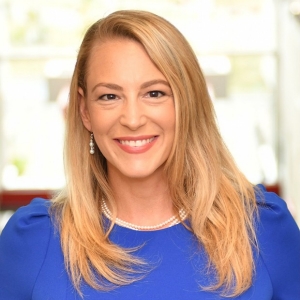From journalism to provincial politics to management roles in the health sector, Julie Quenneville has pursued issues close to her heart.
Within a year of joining the office of Philippe Couillard — Quebec’s then minister of Health and Social Services — Quenneville was promoted to associate chief of staff. In her role, she was responsible for steering historic legislation on tobacco and mental health, as well as coordinating the campaign to save the Shriners’ Hospital for Children.
Quenneville now makes her mark on health care as president and chief executive officer (CEO) of the McGill University Health Centre (MUHC) Foundation, which supports patient care and research at one of the largest teaching hospital networks in Canada. As head of the foundation, Quenneville leads a top-notch fundraising team.
In the pipeline
“Research targeting personalized cancer care, or precision oncology, that aims to offer the best medication for each patient. In my role at the MUHC Foundation, I get satisfaction out of helping outstanding researchers make a difference in the world.”
Proudest moments
“Being recognized as one of the Top 100 Most Powerful Women in Canada by the Women’s Executive Network. The ceremonies for the opening of the MUHC at the Glen site in June 2015 — it was an incredibly emotional day.”
Career accomplishments
“Thanks to the Tobacco Control Act, the province of Quebec no longer has the country’s highest smoking rates.”
Toughest challenge
“Fundraising was difficult when a former MUHC CEO was arrested on fraud charges. Despite the crisis, the community stood by us and the campaign raised $340 million towards the redevelopment of the hospital. When things get tough, you keep moving and develop resilience.”
Concordia factor
“The professors had real expertise in their fields. For example, we learned about constitutional politics from the people who worked on the Meech Lake Accord.”
Words of wisdom
“Ask for help. It’s not a sign of weakness.”
Paying it forward
“I didn’t have female mentors until late in my career. I make sure to pull and push for women as others have done for me.”
